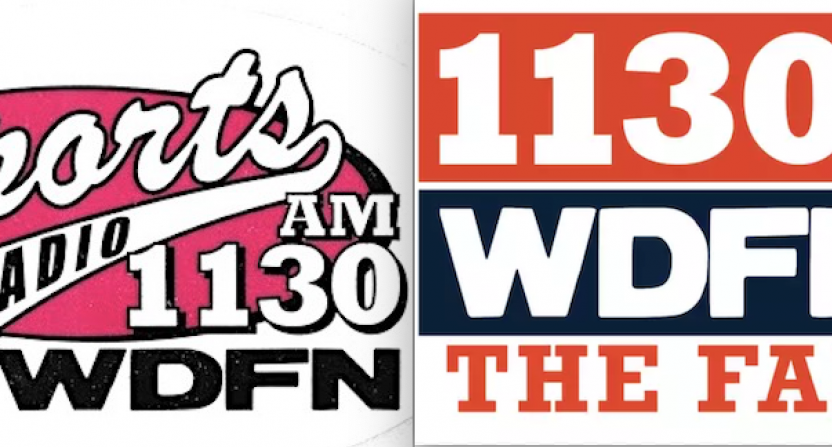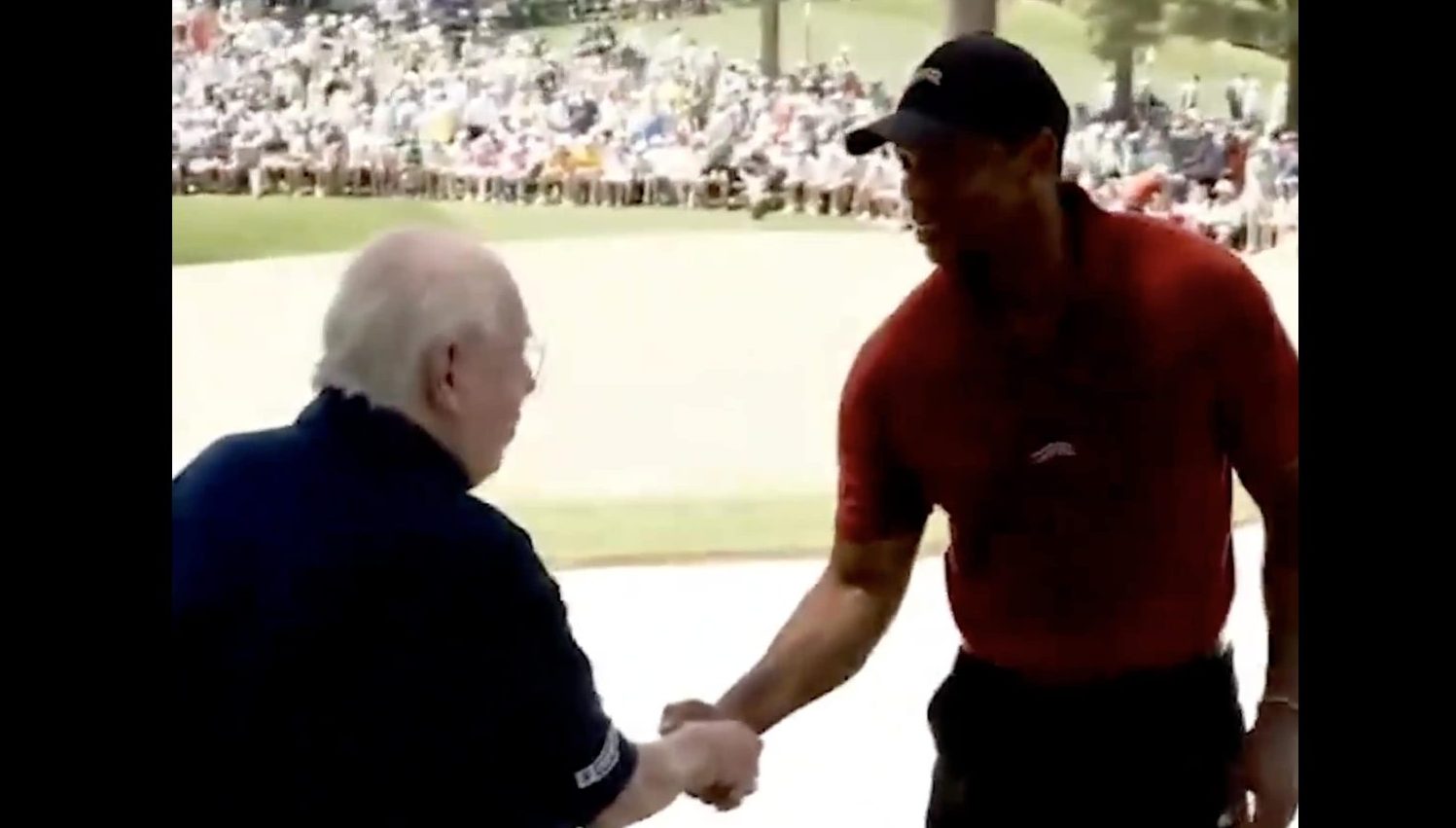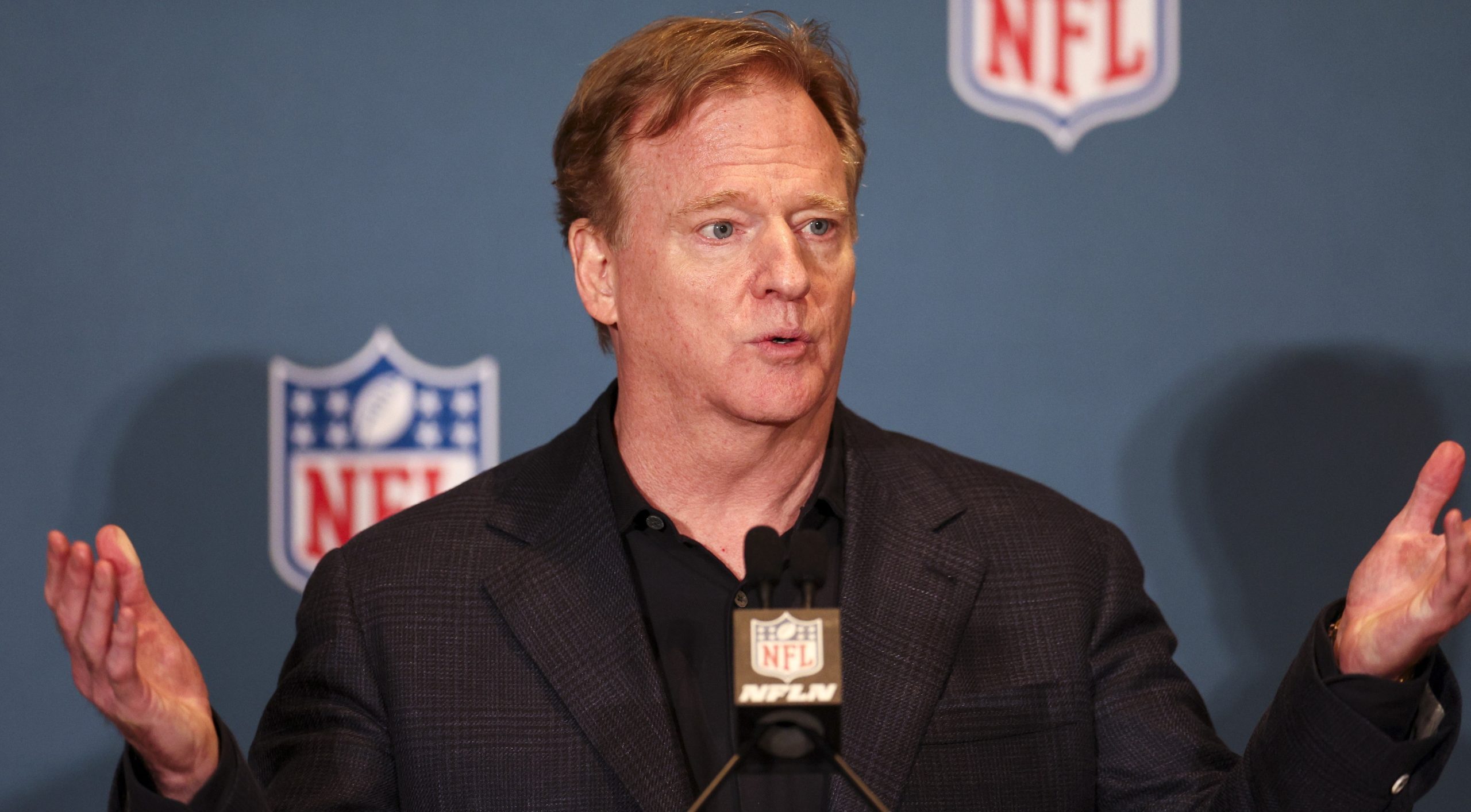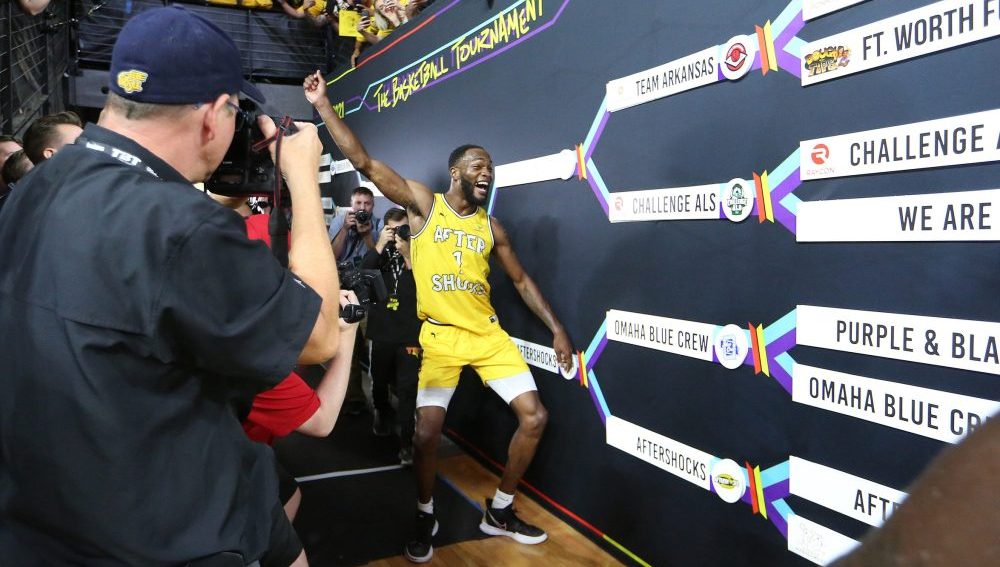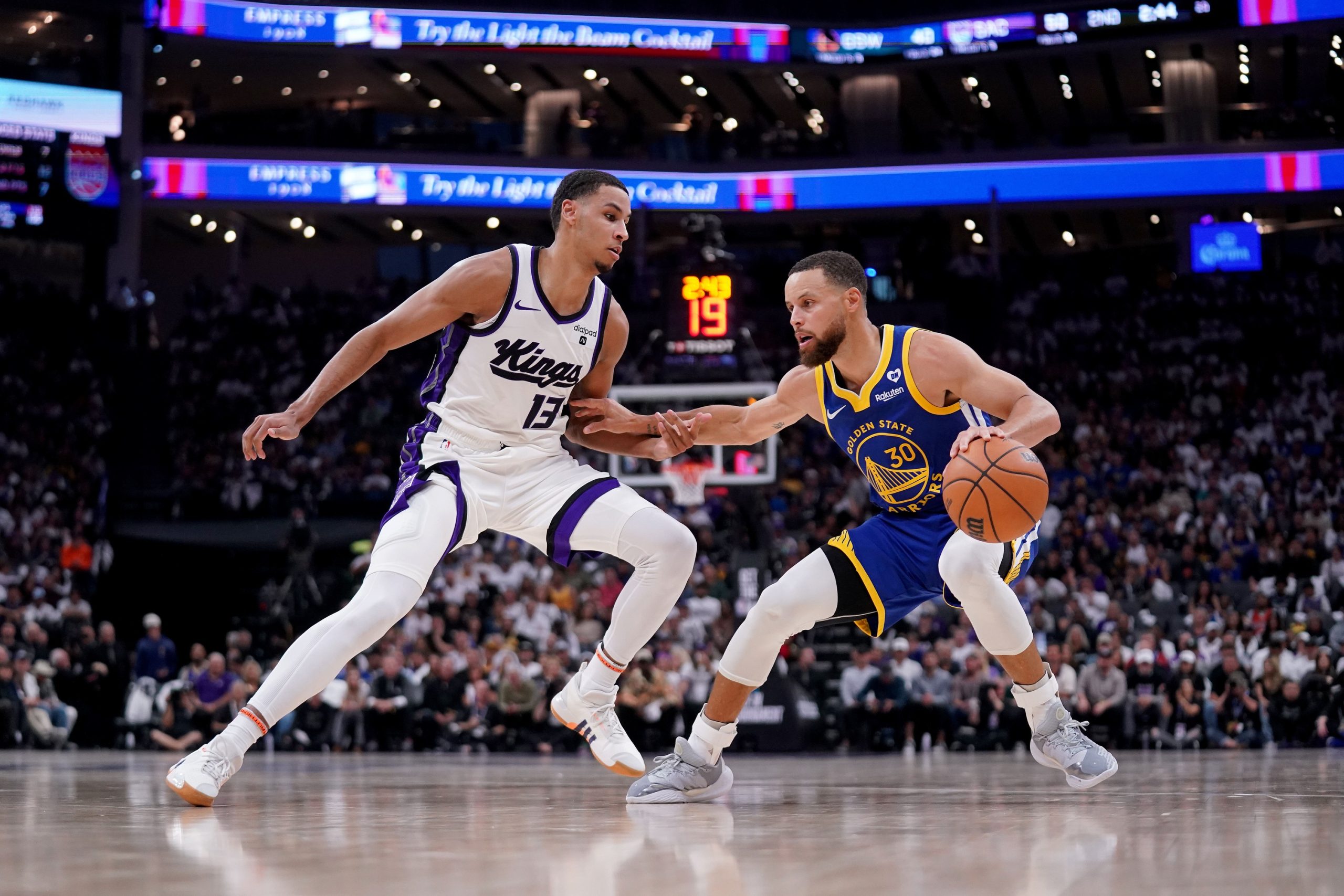Calling something the “end of an era” can often be overstated. But for Detroit sports fans, an era truly did end on Monday night when the city’s original sports talk station, WDFN 1130 AM, was taken off the air in a format change by iHeartMedia.
News of the switch was first reported by Detroit Sports Nation, based on a Facebook post by former Detroit sportscaster Mark Wilson, who had two stints as an on-air host at WDFN with FS1’s Rob Parker.
I know that #WDFN basically went kaput in 2009 but still sad to see it GONE in the sports forum today. Will always b Detroit's ORIGINAL sports talk station. Plus, it's where I first paired with @RobParkerFS1 so it's special to me for that alone. Lots of great people worked there pic.twitter.com/AFPyYqkly9
— Parker andTheMan (@parkerandtheman) June 30, 2020
According to RadioInsight, the iHeart Media conglomerate will be switching the format for 15 of its stations in markets with larger Black populations to the “Black Information Network,” featuring programming geared toward African American listeners. Sports talk stations in Augusta and Macon, Georgia; Greenville, South Carolina; and New Orleans are also affected.
As of Monday night, WDFN and other stations changing formats were playing speeches and audio clips from acclaimed Black figures such as former President Barack Obama, Oprah Winfrey, and Malcolm X. Listeners were told to tune in Tuesday afternoon at 12 p.m. ET for “an important announcement” about the station’s future.
https://twitter.com/downi75/status/1277922858698788864
WDFN went on the air (switching from a simulcast of an FM country music station) with its all-sports format in July 1994. Branding itself “The Fan,” it was Detroit’s first sports talk station. (Other stations in the market, such as WJR and WWJ, had sports programming at night or on weekends, but not 24 hours a day, seven days a week.)
The original lineup was Butch Stearns and former Detroit Tigers pitcher Lary Sorenson in morning drive-time, ESPN Radio’s The Fabulous Sports Babe for the late morning, Van Earl Wright during mid-day, Mike Stone and Rob Parker (then a columnist for the Detroit News) for afternoon drive-time, and former Michigan State football player Ike “Mega Man” Griffin in the evenings.
When WDFN was born, it was the right thing at the right time. I can’t tell you how many times I stayed in my car to listen JUST a little bit longer before school or work. To have the honor, 5 years later, to work there for a dozen years was a total blessing. Good memories and fun
— Sean Baligian (@SeanPBali) June 30, 2020
RIP, WDFN The Fan. That station got me through some long drives when I was in my young 20s, working in Port Huron and living in Madison Heights.
— Tony Paul | Detroit News (@TonyPaul1984) June 30, 2020
Detroit News columnist Bob Wojnowski later took Parker’s place as Stone’s co-host and the “Stoney and Wojo” show became the top sports radio show in the market. Several attempts at a local morning show didn’t connect with listeners until Jamie Samuelsen and Gregg Henson took the timeslot, followed by Samuelsen with Greg Brady (now with DAZN Canada). But after an eight-year run, local programming was booted off mornings for Mike & Mike, as was the case for many ESPN Radio affiliates.
ESPN’s Dave Pasch is arguably WDFN’s most famous alumnus, working at the station as a news anchor, on-air host, and play-by-play announcer for the market’s International Hockey League team, the Detroit Vipers. CBS Sports Radio’s Brandon Tierney hosted midday in the early-2000s. Matt Shepard, now the TV voice of the Detroit Tigers, had several roles at the station, including a morning show after WDFN became a Fox Sports Radio affiliate.
we've all read how WDFN Sports Radio will be no more as of today. It was a special place to work. I worked with, not just co-workers, but people who I considered dear friends. Their talent was immense and I treasure those memories.
— Matt Shepard (@ShepMatt) June 30, 2020
For Detroit fans, a dedicated sports talk radio station felt like affirmation.
A city with teams in all four major professional sports — Lions, Tigers, Pistons, and Red Wings — with big-time college teams like Michigan and Michigan State deserved the same kind of outlet that markets like New York, Los Angeles, and Chicago had. And in the days before the internet took hold of the culture and social media was established, there were very few platforms for Detroit sports diehards to vent their opinions and join in fan camaraderie.
Not only did WDFN give Detroit sports fan a voice, but its on-air personalities gave voice to the frustrations and joys of following the city’s teams. Each demoralizing loss by the Lions was somewhat relieved by the outrage expressed by Art Regner and Gregg Henson on Sunday afternoons and evenings.
WDFN was one of the best experiences of my life. There are so many terrific memories, my colleagues were the most talented people I have ever worked with, but what made our station the best was the people – the fans who embraced us, allowing us to do our thing, thank you Detroit! https://t.co/znuABf5dHk
— Arthur J. Regner (@ArthurJRegner) June 30, 2020
Regner became the voice for Red Wings fans when the team finally broke its decades-long Stanley Cup drought with titles in 1997 and 1998, and went on to broadcast for the team through later championship runs. (Detroit Free Press beat writer Keith Gave co-hosted in the mornings during that era as well, giving fans reporting and insight on a beloved team.)
Growing up and spending most of my life in the metro Detroit area, WDFN meant a lot to me personally. The station and its hosts were my companion throughout the day, especially when commuting to school and work. (Sports talk was especially meaningful when I drove a delivery truck.) After a big win or loss, or major news like a trade or free-agent signing, it was the first place to go for reaction to those events.
I literally grew up listening, calling, and faxing (yes, faxing, look it up kids) WDFN. If not for guys like @stoney16, @bobwojnowski, @KeithGave, @ButchStearns, @JamieSamuelsen, and @gregghenson humoring a 12 year old kid with a squeaky voice yelling about Wayne Fontes (2/4)
— Scott Warheit (@swarheit) June 29, 2020
I remember calling in to the station early Sunday morning the day after Colorado shocked Michigan in 1994 with that Kordell Stewart-to-Michael Westbrook pass. Not only was I commiserating with fans, but as an aspiring sportswriter, I wanted to pick Bob Wojnowski’s brain on how he handled the story changing in an instant.
When I got one of my first professional assignments covering a Tigers game, Matt Dery — then the sports director at WDFN — was someone I knew through emails and phone calls. He could see a novice overwhelmed in that setting for the first time and provided welcome help and support. Engineer Albert Dale was another buoy for me the first time I covered a Pistons game.
Even after leaving Michigan, I occasionally corresponded with Mike Stone to keep up on the sports and media scenes.
For many, including those who worked at the station over the past 26 years, WDFN effectively ended when it was first taken off the air in 2009 (during Barack Obama’s inauguration). Personalities like Stone, Wojnowski, Henson, Samuelsen, and Terry Foster jumped over to the competition. Though the local sports format was later revived, the station was never quite the same. The decline had already been happening for years.
So long WDFN. I loved my first radio job on a show called The Sports Doctors with Art Regner. Working in the garage a block off East Jefferson was like being in college again.
— r/datadao (@rdatodao) June 30, 2020
WXYT had become the dominant sports talk station in town, especially when it moved to FM (97.1 The Ticket) and could reach a much wider audience. The Ticket also had the considerable advantage of becoming the flagship station for Detroit Tigers baseball. WDFN argued that it could be a more objective voice since it wasn’t partnered with a team, but fans tuned in for the games and typically didn’t turn the dial afterward. Mike Valenti’s show dominates afternoon drive-time.
Despite that, there’s a finality to WDFN going off the air this time. It’s not coming back. The Detroit radio scene is far different. (Another sports station, Detroit Sports 105.1, didn’t even make it three years on the air.) And sports talk, in general, has changed. Though radio is still readily accessible (especially online), fans get their fix through social media, message boards, blogs, websites, and podcasts now. Most, if not all, good things eventually come to an end, right?
But you always remember your first. Long before this format change, WDFN wasn’t the station that it once was. Yet it filled a major void in Detroit for a sports fanbase that was starving for that kind of programming. That’s certainly worth remembering and celebrating.

